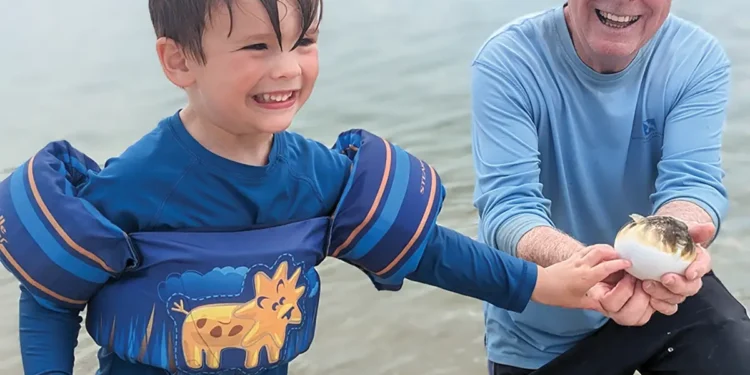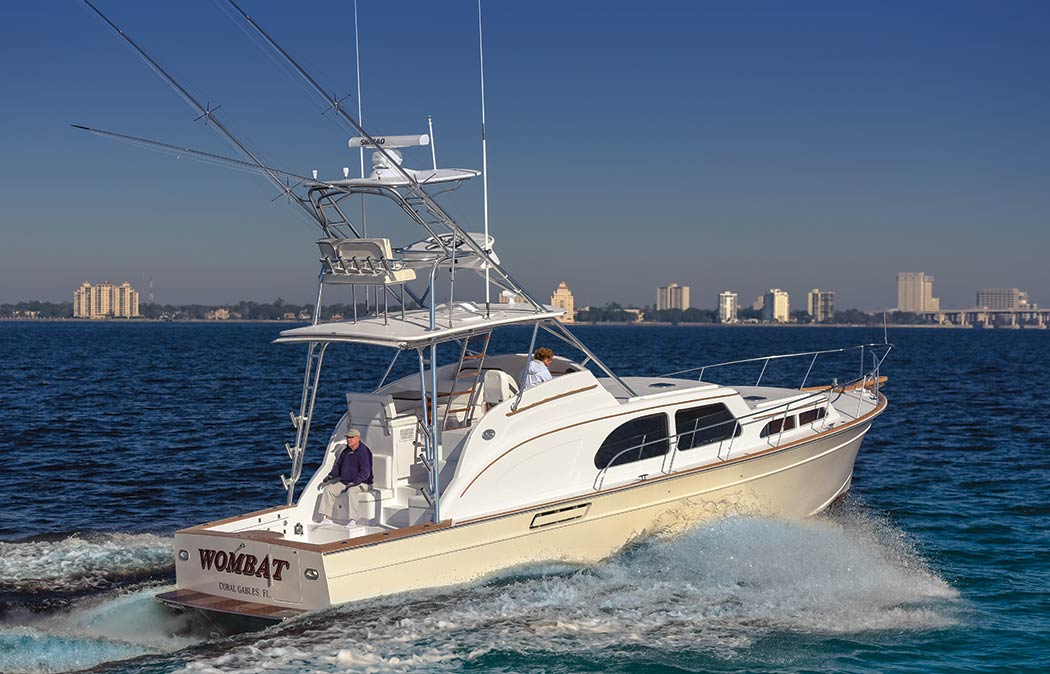When teaching kids to fish, simplicity, action, and bonding matter most.
Hayden Franchini couldn’t have been prouder. Standing in knee-deep water at the mouth of a small Long Island, New York, tidal creek, my 4-year-old grandson was pumped as he announced for the entire world to hear that he had caught a blowfish—all by himself! His enthusiasm drew instant smiles from nearby beachgoers, his family enjoying some down time on the sun-soaked beach, and his 7-year-old sister, Emma, who would reel in a juvenile black sea bass just minutes later.
The sounds of joy surrounding the quick release of those fish following a brief inspection that revealed beautiful shades of iridescent blue and green on the sea biscuit—and an opportunity for the puffer to inflate to quadruple its normal size—still ring loudly in my mind, as does the realization two more youngsters had joined the angling ranks.
Also Read:
Useppa Is for Lovers
Chart Your Course for this Tropical Island Gem That Captures the Heart and Restores the Soul Boaters are...
August may be the height of the hot and sweaty season along the coast, but it’s also the perfect month to introduce youngsters to fishing. While many game fish favored by experienced anglers and trophy hunters sulk at the height of summer, near-shore shallows can be awash in small, easy-to-catch species like spot, surf perch, porgies, and puffers, setting up an ideal scenario to teach kids to fish.
Outdoor industry surveys consistently reaffirm most anglers catch the fishing bug at an early age. Thus, initial trips need to be fun and successful if you are hoping to mentor a future fishing partner. Too often, beginner trips end up being spur of the moment. Minimal planning can lead to frustration for both kids and adults as gear might not be properly matched to smaller hands and bodies, the tidal stage could be unfavorable, or the fish simply might not want to cooperate. Ideally, mentors should pre-fish their potential destination to ensure that their primary targets are in a feeding mood.
One important point to keep in mind on these early excursions is that youngsters have limited and varied attention spans, so keep the sessions short. An hour is often plenty of time to catch a couple of fish and get out of Dodge with everyone smiling.
Subscribe Here For More Boating Content
Also remember that you are tailoring these trips for children, so leave your trophy ambitions at home until your mentees get up to speed and are ready for bigger challenges. Try to think about these trips as a child might. Imagine, for example, the excitement of catching a sea robin. Considered by some grown-ups to be “trash fish” even though tasty and hard fighters when taken on light tackle, 8-year-olds see them as having wings, bright colors, huge mouths, and spiny skulls. Think of them as “dragon fish” and you will see why kids love catching them. Return them gently to the water, and you can begin to instill conservation ethics in your protégées.
Hayden and Emma will be visiting again later this month. They are already anticipating a trip to the beach where we’ll swim and float until the tide is perfect before trying to repeat last year’s success. If the fish don’t bite, we’ll lay down our rods, play catch-and-release with fiddler crabs, look for interesting seashells, and watch osprey dive for dinner. Whether the fish choose to bite or not, it’s going to be a lot of fun—for all of us.
-by Tom Schlichter






















